For a CT scan, you should wear comfortable, loose-fitting clothing to your exam. You may be given a gown to wear during the procedure.
Metal objects including jewelry, eyeglasses, dentures and hairpins may affect the CT images and should be left at home or removed prior to your exam. You may also be asked to take out hearing aids and removable dental work.
You may be asked not to eat or drink anything for several hours beforehand, especially if a contrast material will be used in your exam. You should inform your physician of all medications you are taking and if you have any allergies. If you have a known allergy to contrast material, your doctor may prescribe medications to reduce the risk of an allergic reaction.
Inform your doctor of any recent illnesses or other medical conditions and whether you have a history of heart disease, asthma, diabetes, kidney disease or thyroid problems. Any of these conditions may increase the risk of an unusual adverse effect.
Women should always inform their physician and the CT technologist if there is any possibility that they are pregnant.
Additional special instructions for CT include:
CT Abdomen and Pelvis (with contrast)
- Consume oral contrast 30 minutes prior for abdomen and 60 minutes prior for abdomen and pelvis.
The following CT scan examinations require two hours of complete fasting prior to the procedure:
- Cervical Spine, with IV contrast
- Chest and Abdomen, with IV contrast
- Chest, Abdomen and Pelvis, with IV contrast
- Extremity, with IV contrast
- Head, with IV contrast
- Internal Auditory Canals (IAC’s), with IV contrast
- Kidney, with IV contrast
- Larynx, with IV contrast
- Liver, with IV contrast
- Lumbar Spine, with IV contrast
- Renal, with IV contrast
- Soft Tissue Neck, with IV contrast
- Thoracic Spine, with IV contrast
Computed Tomography Angiography (CTA)
Computed Tomography Angiography, or CTA, is an examination that uses x-rays to visualize blood flow in arterial and venous vessels throughout the body, from arteries serving the brain to those bringing blood to the lungs, kidneys, arms and legs. CTA is a patient-friendly procedure – contrast material is injected into a small peripheral vein by using a small needle or catheter. This type of exam has been used to screen large numbers of individuals for arterial disease. Most patients undergo CT Angiography without being admitted to a hospital.
For a CT Angiography, you are required to have two hours of complete fasting prior to the test.
Computed Tomography Virtual Colonoscopy
There is extensive preparation for this specialized screening exam. The preparation routine to follow consists of four parts:
- follow the low fiber/low residue diet which begins three days before your virtual colonoscopy
- drink the smoothie barium
- take fleet phospho-sda
- drink the MD-gastroview oral contrast agent.
Click here to download the Capitol Imaging Services patient preparations document.

